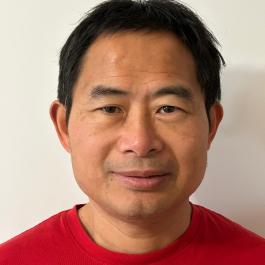The UCSF AIDS Research Institute (ARI) held a special competition in Fall 2023 to facilitate scientific progress in HIV research and to enhance the effectiveness of UCSF’s HIV research, care, and education initiatives. We called for pilot award applications from UCSF faculty investigators to generate preliminary data for ARI priority topics in HIV research.
Priority Topics:
- HIV Cure (laboratory, clinical, or behavioral)
- New Applications for Artificial Intelligence (AI) in HIV Research (laboratory, clinical, or behavioral)
- HIV Associated co-morbidities (laboratory, clinical, or behavioral)
- Substance Use Disorders in the context of HIV: Implementation and Treatment studies
- Vulnerable Populations in the context of HIV: Implementation and Treatment Studies
The award amount was to $100,000 direct/total costs (no IDC included), that can be spent over a period of 1-2 years. Complete applications which met eligibility requirements were reviewed by the ARI Leadership Committee and evaluated on the quality of proposed scientific investigation, and prospect that the data generated will be the launching point for future funding. Funding decisions were made with the approval of the ARI Leadership Committee.
Awards:
Preliminary data and capacity-building for biomarker-augmented alcohol interventions for PWH in Uganda
The long-term goal of this research is to develop novel biomarker-based strategies to treat unhealthy alcohol use, a persistent barrier to health among a high proportion of persons living with HIV and a barrier to ending the HIV epidemic. Unhealthy alcohol use, i.e., the entire spectrum from risky drinking to severe alcohol use disorder, is common (22-30%) among persons with PWH, impairs antiretroviral (ART) and isoniazid adherence, and fuels inflammation, HIV non-suppression, co-morbidities, and social harm. We hypothesize that incorporating alcohol biomarkers into alcohol interventions may improve their efficacy by increasing readiness and motivation for behavior change, a common requirement for behavioral interventions. This is based on evidence that using biomarkers of antiretroviral concentrations to augment adherence counselling may improve ART adherence, and biomarker feedback useful for treating diabetes (HbA1c) and liver disease (liver enzymes). Phosphatidylethanol (PEth) is a quantitative blood-based alcohol biomarker that is highly correlated with total prior month alcohol consumption; we have been world leaders in using PEth in over 15 years of alcohol/HIV research.
While PEth testing is currently conducted using liquid chromatography with tandem mass spectrometry (LC-MS/MS), a new enzyme-linked immunosorbent assay (ELISA) PEth test has been developed, that is a potential game-changer for dramatically increasing the availability of PEth testing, especially in low-income countries such as Uganda. In blinded testing of our research dried blood spots (DBS), the immunoassay compared very well to prior LC-MS/MS-based testing, with 82% Spearman correlation with LC-MS/MS PEth results. This ELISA-based PEth assay has the potential to increase PEth accessibility globally, allowing it to become a key component of alcohol reduction interventions, thus addressing a critical driver of HIV. This research will accomplish the following aims. (1) To build the capacity for PEth ELISA testing in Uganda. (2) To assess participant perceptions and experiences of receiving PEth ELISA results and the impact on subsequent alcohol use and other behaviors (e.g., ART adherence). This research will be conducted in the context of an ongoing prospective cohort study of persons with HIV and unhealthy alcohol use in Mbarara, Uganda. This study will yield preliminary data for a large trial that will test whether incorporating PEth into alcohol interventions can motivate readiness to reduce alcohol use and improve HIV outcomes. It will also lay groundwork for using biomarker feedback in other behavioral interventions for HIV prevention and treatment
Investigator (Judy Hahn, PhD):

Judy Hahn, PhD, is Professor of Medicine in the HIV, ID, and Global Medicine Division in the Department of Medicine at the University of California, San Francisco. She is an epidemiologist with extensive experience studying the behavioral and biological intersections of alcohol use and HIV. She is a pioneer in the use of objective alcohol biomarkers to increase ascertainment of unhealthy alcohol use. She has been the Principal Investigator (PI) on numerous NIH grants, and has published almost 200 peer-reviewed manuscripts, and is a committed mentor to researchers in the US and internationally.
When are ART and antiviral antibodies really gone? – Defining true “post treatment” timing for Treatment Interruption Studies
Antiretroviral (ARV) treatment interruption (ATI) studies are the gold standard for studying cure interventions. Interpreting response to interventions during ATI hinges on complete confidence that residual antiviral medications are not present. We will leverage samples from two UCSF-based ATI studies: the SCOPE ATI study and the amfAR combination trial to determine when ARVs and broadly neutralizing antibodies (bnAbs; a key therapeutic of interest for HIV cure, prevention, and treatment) are no longer detectable in plasma, PBMCs, and tissue to ascertain the precise time of true treatment interruption.
To date no study has characterized ARV or bnAb PK during ATI in plasma, cells, and tissue. This is due to a lack of planned intensive PK studies in ATI study designs, priority of viral and immune assays for precious cell and tissue samples, and the need for development of validated, highly sensitive and specific assays for ARV and bnAb quantitation across matrices and to very low levels. Even current tissue bnAb ELISA assays lack specificity at low concentrations, nor are they fully validated to NIH Clinical Pharmacology and Quality Assurance (CPQA) standards. Mass spectrometry (MS) assays present significant challenge for bnAb peptide separation – in addition to state-of-the-art equipment for chromatographic separation and mass detection, our group has a combined century of method development experience including complex multidrug assays and novel matrix and analyte extraction. Our group’s intersection with CPQA leadership, DAIDS pharmacology program officers, and Vaccine Research Center (VRC) PK scientists on this work presents a very rare chance to answer these pivotal PK questions. Our results will have broad implications for interpretation and future design of ATI studies, as well as their development for PrEP and HIV treatment.
Investigators (Amelia Deitchman, PharmD, PhD; Liusheng Huang, PhD):

Dr. Deitchman received her Doctor of Pharmacy and PhD in Pharmaceutical Sciences from the University of Florida before joining UCSF as a T32 Clinical Pharmacology Fellow in 2018. She has developed her research program on HIV cure clinical pharmacology in the Drug Research Unit, a CFAR Pharmacology subcore, where she has served as co-Director since 2022. Her ultimate goal is to inform drug development for HIV cure through the study drug effects on immune and viral outcomes in curative clinical trials. In addition to receiving numerous CFAR and ARI grants, as well as K12 and K23 Career Development Awards, she is the recipient of the 2024 Darrell Abernethy Early Stage Investigator Award from the American Society of Clinical Pharmacology and Therapeutics.

Dr. Liusheng Huang received a bachelor's degree in Medicinal Chemistry from Beijing Medical University, a master's degree in Medicinal Chemistry from Peking Union Medical College in China, and a PhD in Pharmaceutical Sciences from Wayne State University (Detroit, MI) with honors. He completed postdoctoral research in reaction mechanism study of hemoprotein enzymes with Professor Paul Ortiz de Montellano in Pharmaceutical Chemistry at University of California San Francisco (UCSF) before joining the Drug Research Unit at UCSF in 2007. He is a Co-Director of the Drug Research Unit with over 17 years of experience working on drug quantification assays
